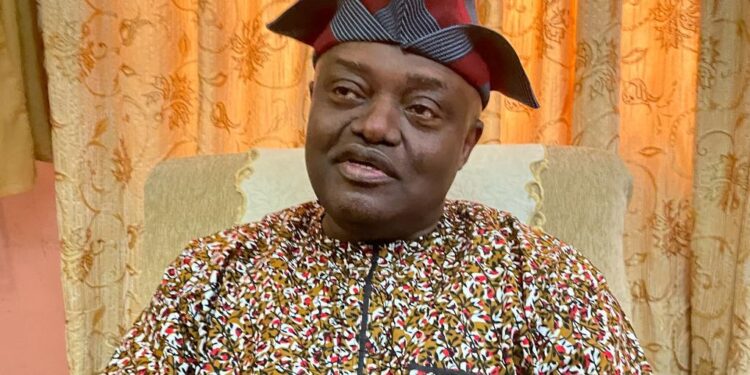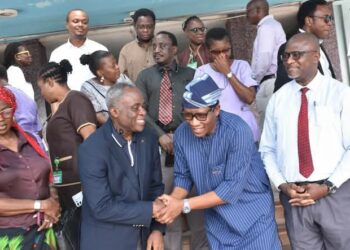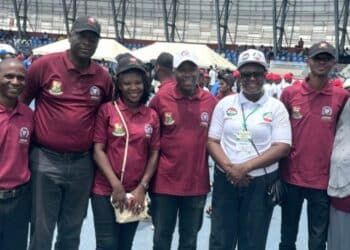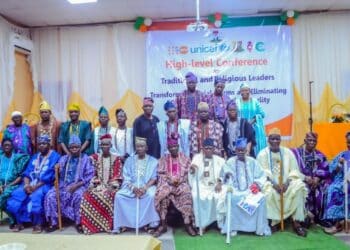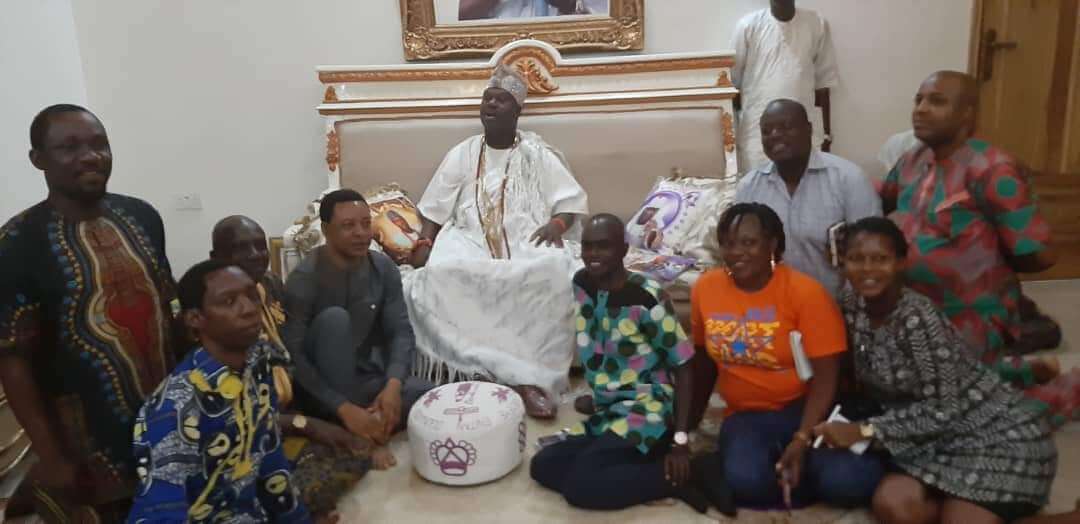Prince Dr. Ajibade Adedayo Adeladan is the Head of the Psychiatry Department at California State University and the Firstborn of the Head of the Agunloye Ruling House of the Great Oyo Empire’s Royal Family. In this interview with the Editor of Art and Culture, OYENIYI ESAN, he examines his educational background, the migration of Nigerian doctors, and how to address the problems in the health sector, among other issues.
Introduction:
My name is Prince Dr Ajibade Adedayo Adeladan. I was born in the town of Oyo, but I am presently living in California, the United States of America. Most of my schooling was in Nigeria. My primary education in Lagos and secondary school was in Oyo from 1973 to 1976 at Olivet Baptist High School. After all, I did my A-Levels at Federal Government College, Ijanikin, Lagos, for two years. I attended the College of Medicine, University of Ibadan, where I studied Medicine and Surgery from 1979 to June 1984. I observed my horsemanship at the Adeoyo Hospital, after which I served my Nigerian Youth Service Corps (NYSC) in Kukawa Local Government of Borno State. I came to the South-West to work with some private hospitals, especially in the Eruwa area of Oyo State, with the late Dr Awodele Olujobi as a surgeon. I went to Lagos, where I worked at some memorial hospitals and proceeded to Lagos University Teaching Hospital (LUTH), where I did my residency training in general surgery. I became a fellow of the West Africa College of Surgeons in 1995.
I left the country for the Caribbean, and my first country was Jamaica. I was there for three months and left for another British colony, Turks and Caicos Islands. They advertised in their newspaper that a general surgeon was needed in the colony, and I applied and was hired for the job. There, I began to work on how to migrate to the United States. I worked at Virgin Airlines. I moved from the company to New York, United States, where I served as the Chief Resident in Psychiatry. I did residency training in psychiatry, and that was from 2004 to 2008. After that, I became board-certified in psychiatry and neurology the following year.
I equally did addiction medicine examinations and became board-certified in addiction medicine. After all, I went to Nebraska and lived in a society where everyone was white. I was the only Black person in the whole town and hospital. This is where I established my love for agriculture because there are a lot of farmers. I have many friends who are farmers. From there, I moved to Colorado, where I worked for many years before moving to California. I am a psychiatrist with the California State Government. I travelled a lot because I love travelling. Since I got to New York, I have come to Oyo every year.
You have an intimidating, credible career profile with global experience and practice. Why would you want to return to Nigeria when many young Nigerians, especially in your field, are leaving the country? Why do you want to come back to Oyo?
Even in the United States, you are not the first to ask such a question. My co-workers ask me now and then. I hear questions like, Why would you decide to leave California and return to Nigeria? I always tell them that Nigeria is the biggest economy in Africa and that there are many opportunities in Nigeria. Most importantly, there are many people that I think I can be of help to in Nigeria.
Biologically, I belong to the royal family, which is now our ruling house’s turn. I see myself as qualified to be the king, and my family supports the royal adventure. I can and want to do it, and my interest has grown since then. Now, I am more confident that it is something that I must do and something that I can accomplish. This is something that I ought to do to help the people. In the Western world, everything is there in terms of comfortability. With these ideas and experiences, we can begin to do things differently, benefiting the people. In the Caribbean, for instance, there are very few countries; Jamaica’s population is probably five million, and the most populous is Cuba, where the population is about ten million. Lagos alone has over twenty million people, and all these small countries have everything. There’s a water supply, and electricity is available for twenty-four hours. We are about 200 million, and we can’t take anything. So, I feel that those experiences that I had, if I come back home, I should be able to contribute my quota. I think being an Alafia with my experience would benefit not only the people of Oyo town but of Oyo State and Africa as a whole.
So if you are not into this Obaship race, could you have joined politics?
No. I could have wanted to be doing things in Oyo, and I would, in a way, invite investors who don’t need to be politicians.
What about your family?
My family lives in the United States. For now, I have a two-year-old son who is in school and will be coming to Nigeria as frequently as possible. So, we would be here.
Did you talk about the agriculture thing? What are your plans?
I have identified lands where such work can be done in Oyo. One can contact those farmers’ contacts; I had them in Nebraska and California, where I am now.
As a medical practitioner, what do you think the Nigerian government needs to do to stop this massive migration of our skilled labour? What is your position?
Let me talk about the long term. I will address all of those issues. For instance, Oyo is a university town, and one of the universities, Ajayi Crowther University, is well established, and I see that university having a medical school. Medical school provides doctors, and it will be helpful to the community. No country in the world has enough doctors, but we see that in Nigeria there are doctors who will finish NYSC but still can’t find a job. This tells us that there is something wrong with the system because Israel has one doctor per 160 people, yet they claim not to have enough. The United States is short 50,000 doctors right now, and no way can be met because it involves many things, like more medical schools. To have 50, 000 doctors quickly is going to be very difficult, which is why they always attract doctors from all over the world. People are retiring, and so many doctors are retiring in their thousands a year. For instance, many of the universities in the United States were established by churches, including Harvard, and I see Ajayi Crowther as a potential source of hope in the long term. We must find doctors who have always wanted to leave; again, there are not enough positions for them.
One of the things we do in this country is that when you finish your specialist training, you are not allowed to work as a consultant until you pass specific examinations. In the United States, for instance, if you have all the experience and training in five years, you are a consultant. You can go to rural hospitals and begin to work as a consultant, and you can write your exams and become board-certified. But here, you must pass all your exams before you can begin to work as a consultant, and there will be a shortcut for doctors. We won’t have enough specialists that way.
In the US, they won’t say that because you have not passed the exams, you won’t work as a consultant, and most importantly, the economy doesn’t encourage doctors to stay, and there are not even enough hospitals. There should be about 20 UCHs in Ibadan, and we won’t be talking about doctors finishing NYSC because they don’t have jobs. We don’t have enough hospitals. The government needs to look into the healthcare sector.
As a long-term plan, will you facilitate the College of Medicine at Ajayi Crowther University?
Yes. They will have enough specialists, and the whole place will be cared for. For now, we have primary health centres in Oyo State, and many things can be done for those primary health care centres. I understand and love how healthcare insurance works in Oyo; people pay a certain amount yearly. I think it is as low as N13,000 a year, and there are Nigerians in the Diaspora who can afford to insure as much as possible. Investors want to come home and sponsor many people. The government cannot do it alone; we must join hands to tackle this problem.


